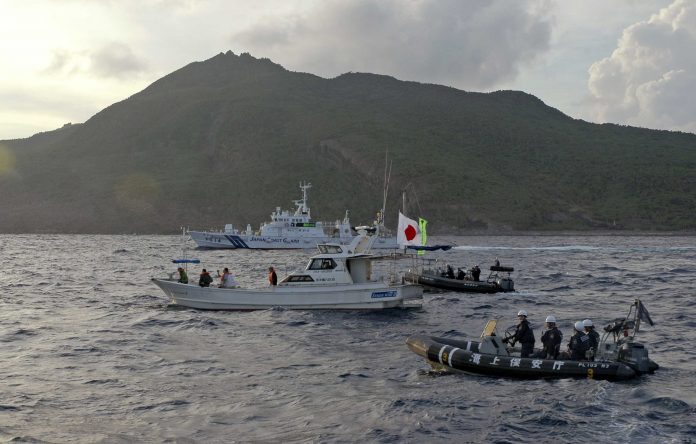
Associated Press
BEIJING (AP) — China renewed its criticism on Wednesday of Japan’s decision to release treated radioactive water from the wrecked Fukushima nuclear plant into the Pacific Ocean.
Foreign Ministry spokesperson Zhao Lijian called the decision to begin releasing the water in about two years a money-saving measure that is “extremely irresponsible.”
Zhao also rejected Japanese complaints over a tweet he earlier sent criticizing Japan’s decision with a picture of a famous Japanese print of a massive wave, saying it was hypocritical of Japan not to allow others to criticize when it had failed to consider the concerns of its neighbors.
“Certain Japanese officials have been playing deaf and dumb. Then why are they so angry about this image?” Zhao said at a daily briefing. “The Japanese side should recognize its responsibility, fulfill its international obligations and revoke its wrong decision.”
Japanese Foreign Minister Toshimitsu Motegi on Tuesday said Japan had protested and demanded removal of the tweet. Ministry spokesman Tomoyuki Yoshida on Wednesday said the tweet lacked scientific basis.
“Contrary to Japan’s sincere effort to respond to the international society with high levels of transparency, (the tweet) is not based on any scientific evidence whatsoever, it is one-sided and it incites emotions, and it is extremely regrettable,” he said.
Japan’s decision had long been anticipated, but was delayed by safety concerns and protests. Cabinet ministers endorsed it as the best option, though it is fiercely opposed by fishermen, residents and Japan’s neighbors. The water has been used to cool melted fuel at the nuclear plant damaged by a massive 2011 earthquake and tsunami, but the tanks where it is being stored will be full next year.
Also Wednesday, Japan said its military has raised caution levels around uninhabited East China Sea islands that it controls but are also claimed by Beijing after six Chinese warships passed near the area and a reconnaissance helicopter flew toward it.
Japanese Chief Cabinet Secretary Katsunobu Kato told reporters that the Maritime Self-Defense Force confirmed that a Chinese fleet of six warships led by the aircraft carrier Liaoning and including guided missile destroyers and a frigate sailed northward between Okinawa and the nearby island of Miyako to enter the East China Sea.
On Tuesday, the Japanese navy spotted a Chinese helicopter that took off from the Liaoning and flew within 50-100 kilometers (30-60 miles) of the islands, prompting Air Self-Defense Force fighter jets to scramble, Kato said.
The islands, called Senkaku in Japan and Diaoyu in China, are also claimed by Taiwan. While relations have been relatively calm recently, many Chinese remain deeply resentful of Japan’s past invasion and occupation of China and expect their government to take a tough line against Tokyo.
There was no violation of Japanese airspace or territorial waters, Kato said.
It is the second time this month the fleet was seen passing the area while traveling between the Pacific and the East China Sea, according to Japanese reports.



















